QUESTIONS FOR CRAFTERS: Luce Beaulieu of POSCH
This month's Q&A is with Luce Beaulieu, founder of two-year old POSCH, a Montreal-based design company that creates bags and gift wrapping fabrics from upcycled textiles. A portion of the profits from each POSCH purchase goes towards supporting the Piping Plover population of
What constitutes "upcycled" fabric? Where and how do you find the material you use in your bags? Does it require special processing; if so, how do you do it?
Upcycling means to take something and to "lift" it out of the downward spiral which usually ends in the global dumpsters, repurposing it in order to further its useful life. In my case, upcycled fabric is basically vintage bed linen, which I find in places such as CERTEX, which is a buyer/reseller of used garments and accessories. But we are talking huge quantities here, think 2 or 3 football stadiums worth of used clothing. So I go through piles of stuff to be able to find the unsoiled, nicely patterned, not too frayed treasures which will eventually end up as bags.
You are committed to tackling one step at a time the huge problem created by the use of plastic bags. How did you go from thinking about eco-design as a solution to actually doing something to make it happen? How did you overcome the disappointment that comes from the trial and error process?
For me it was really about the challenge of taking unwanted fabric and making it into something useful. I created my eco-design brief from there, trying to look at the implications on the environment at every step of the life cycle of the product, from cradle to cradle (thanks here to McDonough and Braungart ) The trial and error part of it is actually the most exciting for a designer, as this is the phase when everything starts to get real, and you get to solve problems for a product that will imminently be marketed. To me, the selling and marketing phases are way worse.
Your bags were launched two years ago at the International Contemporary Furniture Fair (ICFF) in
I found out about those two events through the Web grapevine, mostly because I'd been researching such events for a while, and studied how they cross-referenced with other blogs and websites. Through this process, I decided that they were good bets, and luckily, I was right. Showing designs is usually pretty easy, as I simply take them with me and demonstrate how they work to the prospective client/shop. Having done quite a few trade shows, you get to feel what people want to know about the product and you start building your pitch accordingly. Of course you accommodate the speech to the person in front of you...a young mother will want to hear about washability first and a fashionista will want to know that each bag is a unique piece, etc etc.
Since introducing your bags, you've created the hot-commodity "I Love
Yes, everything single POSCH product has 2 things in common: they are made from upcylced fabric and they are made/printed here in
How much does the creative process need to be tempered by business practicalities – at what point do you know a creative idea is worth taking a chance on – or not?
Fairly early on, and it really depends on your angle for your company. Some designers want to go one-offs and strictly unique, but for me this wasn't a viable business option, as the market here is very small for eco-luxury one offs. Still, I wanted to offer consumers a certain degree of uniqueness and so I tailored the process to introduce some randomness (pattern combinations, colors, etc). Also, being a graphic designer, I don't have all the usual graphic design and marketing out of pocket expenses, so its a lot easier (and cheaper) for me to, say, introduce a new printed graphic on an existing bag design than it is for a fashion designer to introduce a new cut. Its really linked to your core competencies. In that way, its essential to be multifunctional.
Have there been any surprises, pleasant or otherwise, while steering a creative enterprise based on deeply-held ethical beliefs into a successful business venture?
Oh, yes. Although I never really thought that I would make a living, let alone a lot of money doing then POSCH products, I wasn't ready for all the time-consuming demands that you must put into a line in order to make it successful. The time spent writing and sending press releases, doing PR, calling stores, taking orders, designing the website, maintaining the blog, organizing fashion shows, traveling, doing trade shows (and preparing for them), folding hang tags, keeping score of stocks, searching for the fabric, having it sewn, designing new models or new products... etc, etc. It never really ends. The fact that I wanted to keep production in
What advice can you offer starting-out designers who want to move beyond designing just for family and friends? Aside of creativity, what other traits does a designer need to be a success?
I think creativity is about 50% of the story. You need to be business savvy - learn Excel and don't think you can get away with it if you can't add numbers! - and it's crucial to learn to cost your concepts very early on. It’s also very important to set your strategy and your angle very early in the game. Will you be an eco-conscious designer who produces their designs locally but uses new fabric? Would you rather work with recycled? Do you want to go the fair trade route and ship production to a coop in
What other ideas are in the Posch pipeline?
None right now that I can speak of. ;-)
How is the fight to save the Piping Plover going?
I haven't dropped in on my plumed friend in a while, I'll need to get back to you on that. But my intuition is that he ain't doing so good since I last saw the stats. Even though it seems on the surface like there is a lot of awareness on all things green, it still remains that climate change, ice caps melting and starving polar bears are very real, and the planet is far from saved. Every little bit counts.
Links:
http://www.posch.ca
http://shop.posch.ca/blogs/posch
http://www.perennia.org
::::::::::::::
After thirteen years in the


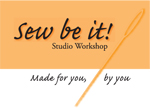



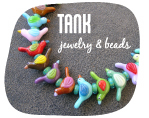
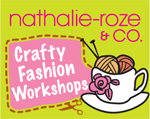


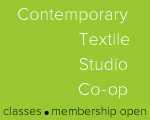


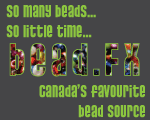




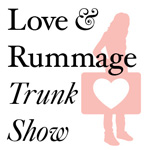




0 Comments:
Post a Comment
<< Home